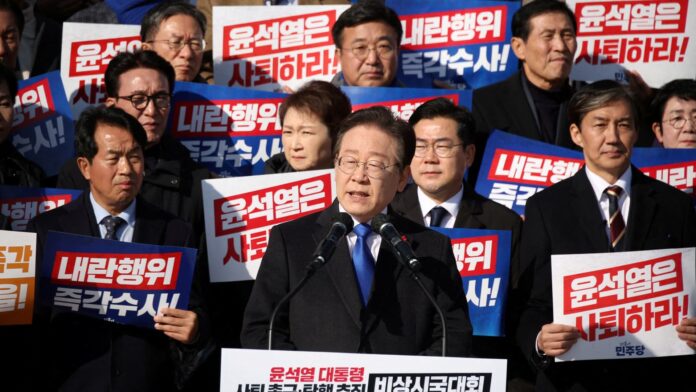
The recent political turmoil in South Korea looks set to be short-lived, according to fund manager Arjun Jayaraman, who said there are opportunities for investors in the country.
The portfolio manager at U.S.-based investment firm Causeway Capital Management added that risks around the South Korean stock market were now priced in, following a failed attempt by President Yoon Suk Yeol to impose martial law in early December and his subsequent impeachment on Saturday.
“We think that Korea is obviously quite a cheap market. It’s priced in a lot of negativity,” Jayaraman told CNBC’s “Squawk Box Asia” last week. “The value is certainly compelling there, so we maintain our overweight position.”
Yoon had strived to boost listed companies — and shareholder returns — via the “Corporate Value Up” program, a Japan-style initiative designed to improve corporate governance and increase investor engagement.
The reforms were also introduced to combat the so-called “Korea discount,” a reference to South Korean securities trading at lower valuations relative to regional peers, due to investor concerns over issues such as corporate governance at large family-owned conglomerates.

Won/dollar
But Jayaraman said that any new South Korean government would likely continue to push these reforms, bolstering returns.
“We do take heart in the fact that even the more left-leaning Democratic [opposition party] seems to be supportive of the Value Up initiative in Korea, which should lead to a re-rating of the market, over the medium to long term,” he noted.
South Korea opposition leaders say that Yoon’s martial law order was an act of insurrection — a claim denied by Yoon, who in turn accused political rivals of creating “false incitement” to bring him down.
South Korea’s main opposition Democratic Party leader Lee Jae-myung, lawmakers and people attend a rally to condemn South Korean President’s surprise declarations of the martial law last night and to call for his resignation, at the national assembly in Seoul, South Korea December 4, 2024.
Kim Hong-ji | Reuters
Following Yoon’s imposition — and then reversal — of martial law late on Dec. 3, the South Korean Kospi stock market index fell around 5.5% before recouping most losses.
Stock call
One of Causeway Capital Management’s largest active holdings is South Korean car manufacturer Kia, which Jayaraman says has been relatively insulated from the domestic tussle.
“Kia is more dependent on U.S in terms export markets, as well as other parts of the West,” he said. “As an exporter, it is more exposed outside of Korea and will obviously be a beneficiary if we see continued weakness in the Korean won, especially vis-à-vis its competitors in Japan.”
The South Korean won plunged against the U.S. dollar after Yoon imposed martial law and is currently trading at a more-than-two-year low against the greenback.
